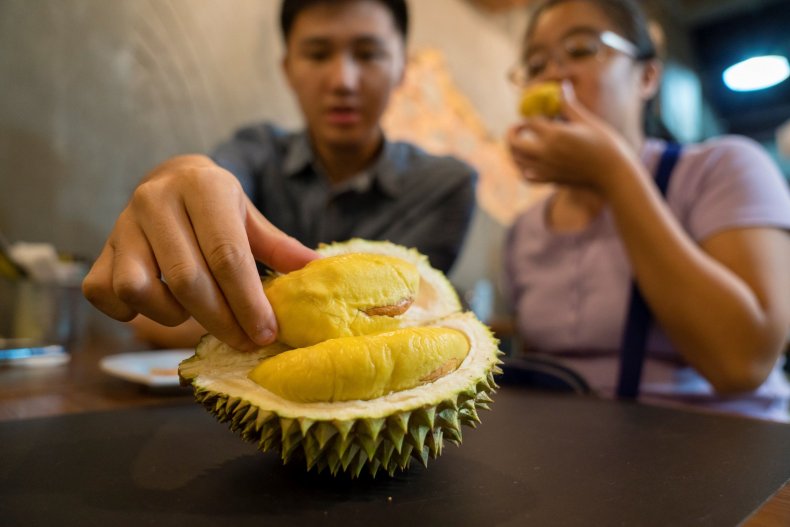
In Canberra, a team of firefighters rushed after reports of a gas leak in a store. However, they met with the pungent odor of Durian fruits sold in the store.
Fruitless Search: Durian, not a gas leak
Emergency responders advised people in Canberra’s Dickson shopping district to avoid the precinct as firefighters were searching the source of a reported gas leak. The region’s agency for emergency management also took to Twitter to update people.
However, an hour-long search for the ‘gas leak’ was fruitless. However, the owners revealed the source of the suspicious smell to the emergency responders-Durian fruits. Canberra’s emergency services later confirmed that it was not a hazardous leak but a pungent-smelling fruit. They resolved the place to be safe for re-entry.
Not the first time: Smelly fruit, a public nuisance

Hailed as the ‘king of fruits,’ the tropical fruit is a favorite for its creamy texture and bittersweet flavor. The fruit is native to southeast Asia. However, the fruit’s smell is similar to rotting garbage or worse! Moreover, it is easy to confuse its smell with a ‘gas leak’. Especially by those who are not fond of it. Hence, it is not surprising that this fruit is banned in public transport and hotels in Hong Kong, Japan, Singapore, and Thailand.
In the last few years, an incident involving the infamous fruit has become common in Australia. The Australian Capital Territory (ACT) alone had two incidents in the last two years. In Melbourne’s RMIT campus, 600 staff and students had to evacuate after the fear of a gas leak. The incident attracted about 40 firefighters and specialty crew who scanned the building in search of the leak. Similarly, in 2019, the University of Canberra’s library was evacuated. people described a ‘strong smell of gas’ which turned out to be the pungent fruit.


